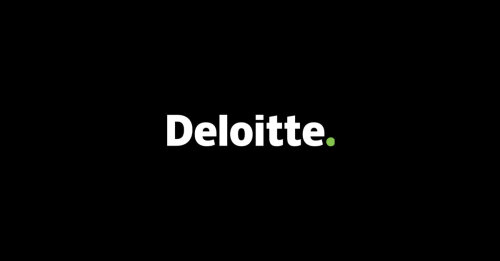Best E-commerce & Internet Law Lawyers in Oslo
Share your needs with us, get contacted by law firms.
Free. Takes 2 min.
List of the best lawyers in Oslo, Norway
About E-commerce & Internet Law in Oslo, Norway
E-commerce & Internet Law in Oslo, and broadly in Norway, encompasses a variety of legal disciplines including digital contract formation, consumer protection, privacy and data protection, electronic payment systems, and intellectual property rights. Given Oslo's stature as a key player in the tech and business sectors, the city follows robust laws designed to ensure fair trade and consumer protection while fostering innovation and entrepreneurship. The regulatory framework is aligned with broader European Union directives, ensuring high standards of online transactions, security, and data protection.
Why You May Need a Lawyer
There are several common situations where legal advice might be necessary in the field of E-commerce & Internet Law:
- Contract Disputes: Understanding and enforcing online contracts, terms, and conditions.
- Consumer Rights: Addressing consumer complaints or e-commerce fraud.
- Data Protection: Compliance with GDPR and Norwegian privacy regulations.
- Intellectual Property: Protecting or disputing digital content rights.
- Taxation: Handling VAT and other tax obligations related to e-commerce.
- Cybersecurity: Responding to data breaches or cyber threats.
- Business Formation: Structuring an online business legally in Norway.
Local Laws Overview
Several key legal aspects specifically pertain to E-commerce & Internet Law in Oslo:
- The Norwegian E-commerce Act: This law regulates electronic commerce and includes provisions aimed at protecting consumer rights in digital transactions.
- Personal Data Act: Implements GDPR in Norway, focusing on protecting individual's privacy and personal data.
- Marketing Control Act: Governs advertising and commercial practices, ensuring they are not misleading or exploitative.
- Intellectual Property Rights Act: Protects trademarks, copyrights, and patents in the digital sphere.
- Digitalization Strategy: Norway's governmental framework supports digital transformation while emphasizing security and consumer protection.
Frequently Asked Questions
What is the role of GDPR in Norway?
GDPR, which is a key regulation in the EU regarding data protection, is fully applicable in Norway. Businesses must comply with its guidelines on data collection, processing, and storage to avoid fines.
Do I need to register my online business in Oslo?
Yes, if you operate an online business in Norway, you must register your business with the Brønnøysund Register Centre to ensure legal standing and compliance with local laws.
What are my obligations regarding consumer rights in e-commerce?
You are required to provide clear information about products, pricing, and terms. Additionally, consumers have rights regarding returns and refunds under the Norwegian Cancellation Act.
How do I protect my intellectual property online?
Secure your digital assets by registering trademarks, copyrights, or patents if applicable and including robust terms and conditions that outline ownership and usage rights.
What constitutes a valid electronic contract in Oslo?
An electronic contract is valid when both parties have consented to the terms. This process involves clear, accessible information and the parties consenting via a recorded digital signature or affirmative action.
Are there specific taxes for e-commerce businesses in Norway?
E-commerce businesses are subject to standard corporate taxes and VAT on goods and services, including digital products, based on the current rates applicable in Norway.
What should I do if my website is hacked?
Immediately report any data breaches to the Norwegian Data Protection Authority and notify affected individuals. Strengthening security measures and possibly seeking legal advice is advisable.
Is consent necessary for email marketing campaigns?
Yes, under GDPR, you must have explicit consent from individuals before sending marketing communications. Clear opt-out options should also be provided.
Can international e-commerce laws affect my Oslo-based business?
Yes, if your business targets customers outside Norway, you need to consider the e-commerce and privacy laws of those jurisdictions, especially within the EU.
What legal steps should I take before starting an e-commerce website?
Understand and comply with all registration requirements, ensure GDPR compliance, protect your intellectual property, and draft clear terms and conditions for users.
Additional Resources
- Norwegian Consumer Council: Offers guidance on consumer rights and complaint resolution.
- Data Protection Authority (Datatilsynet): Provides information on privacy rights and data protection.
- The Brønnøysund Register Centre: Responsible for registration of business entities in Norway.
- Legal Aid Offices: Offer initial advice and support on legal matters.
Next Steps
If you need legal assistance in E-commerce & Internet Law in Oslo, consider the following actions:
- Consult a Lawyer: Seek experienced legal experts specializing in E-commerce & Internet Law for personalized advice.
- Document Your Needs: Clearly outline your legal concerns or objectives to facilitate a productive consultation.
- Research Legal Firms: Identify and contact firms with proven track records in e-commerce and technology law.
- Utilize Online Resources: Gather preliminary information and updates from authoritative online legal resources.
Lawzana helps you find the best lawyers and law firms in Oslo through a curated and pre-screened list of qualified legal professionals. Our platform offers rankings and detailed profiles of attorneys and law firms, allowing you to compare based on practice areas, including E-commerce & Internet Law, experience, and client feedback.
Each profile includes a description of the firm's areas of practice, client reviews, team members and partners, year of establishment, spoken languages, office locations, contact information, social media presence, and any published articles or resources. Most firms on our platform speak English and are experienced in both local and international legal matters.
Get a quote from top-rated law firms in Oslo, Norway — quickly, securely, and without unnecessary hassle.
Disclaimer:
The information provided on this page is for general informational purposes only and does not constitute legal advice. While we strive to ensure the accuracy and relevance of the content, legal information may change over time, and interpretations of the law can vary. You should always consult with a qualified legal professional for advice specific to your situation.
We disclaim all liability for actions taken or not taken based on the content of this page. If you believe any information is incorrect or outdated, please contact us, and we will review and update it where appropriate.









